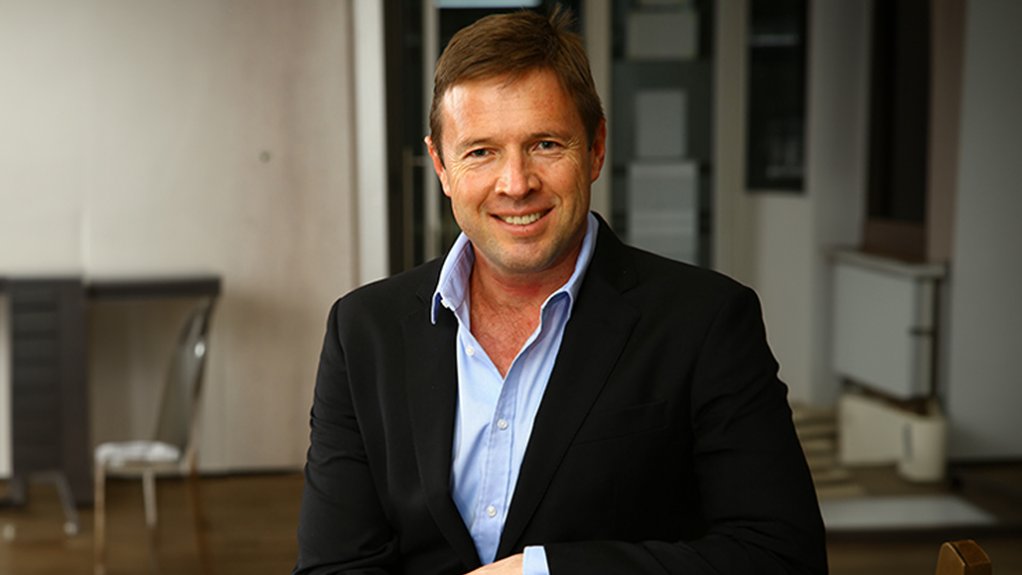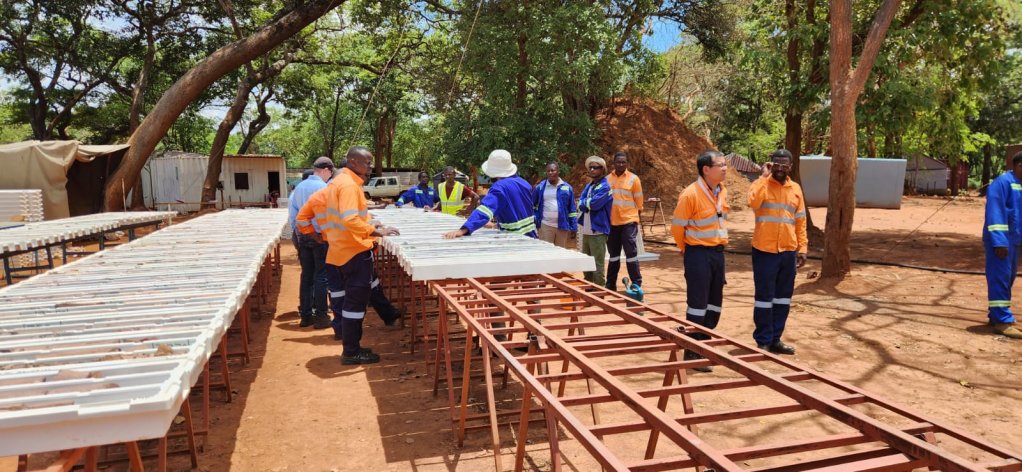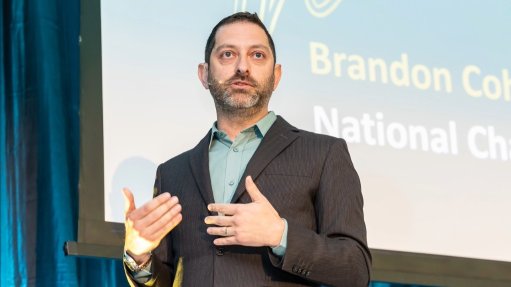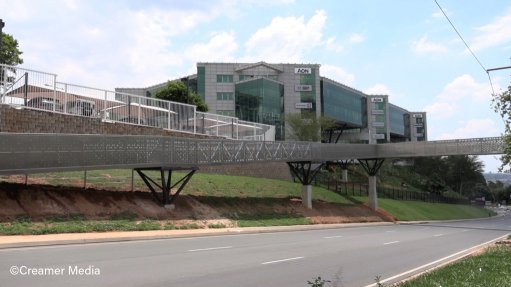Continued exploration, mine development in 2024



ANDREW VAN ZYL The more important questions about mining’s prospects for the coming year relate to the foundation that the sector is creating for the longer term
EXPLORING THE FUTURE Exploration investment and discoveries will continue to dominate headlines
With Africa’s substantial and varied mineral endowment being undisputed, the year ahead will likely see ongoing progress in exploration and mine development, in both traditional metals and the minerals associated with the global energy transition, according to mining consultancy SRK Consulting MD Andrew van Zyl.
According to market and sector intelligence company S&P Global, Africa hosts the world’s highest grade of midsized gold reserves, while also hosting more than half the planet’s platinum group metals (PGMs), manganese and cobalt reserves – which are vital for certain battery storage technologies – he adds.
While mineral exploration investments and discoveries grab the headlines concerning Africa’s mining prospects for 2024, “there is less visible progress being made that promises to strengthen the sector’s future”, states Van Zyl.
By the end of 2022, there was a healthy project pipeline of almost 600 projects led by gold and copper/cobalt, but also including coal, diamonds, PGMs and base metals.
The exploration spend at that time was rising at about 12% year-on-year, driven mainly by funding out of Canada, followed by Australia, the UK and South Africa.
Therefore, he says there is “every reason to feel confident that mining is an industry with a great deal still to contribute to Africa’s economic development”, even if the progress is uneven between countries and regions.
Van Zyl points out that the more important questions about mining’s prospects for the coming year relate to the foundation that the sector is creating for the longer term.
“As mining has grown across the continent, it often creates islands of prosperity that stand out starkly from the existing socioeconomic landscape. Mines attract not only jobseekers and prospective suppliers and beneficiaries, but also informal artisanal miners. The result is a range of environmental, social and other impacts that are complex to manage.”
However, these impacts do not remain only locally significant, he says, noting that as mineral-consuming corporates and end-users become more concerned to ensure ethical standards in procurement, these in-country conditions attract international attention.
These issues are just one aspect of the environmental, social and governance (ESG) priorities that are now considered by mining operations, which include human rights, decarbonisation and supply chain localisation.
Mining Impact on Society
Looking to 2024, Van Zyl says it is important to reflect on the progress that the sector is making in addressing these challenges.
“From our experience in SRK Consulting, there is certainly much to commend mining’s advances to date, notwithstanding the difficulties yet to be resolved.
“Consider, for example, how the purely technical focus in areas such as engineering, mining and processing has evolved. The business of mining has today generally embraced a much broader understanding of how mining can support broader societal goals and better engage with the community.
“This has led to the integration of disciplines relating to water, environmental and social science, which now make an essential contribution to the way that mines are planned and operated,” he says.
In this sense, Van Zyl points out that mining is always being positively disrupted by advances in expertise, approach and technology; albeit usually at a gradual pace.
Importantly, he says there have been many changes across an ever-wider spectrum of professional fields, as the industry brings more disciplines to bear on its central goal of responsible and efficient mining.
“This ongoing development of expertise in a broader range of disciplines is also contributing to progress in solving previously intractable challenges like artisanal mining.”
Further, mining institutions have played an important role in continuously raising the ESG bar alongside the industry’s technological advances, Van Zyl highlights.
Standards of business practice are always being developed and reviewed in light of global trends, and the sector’s leading companies commit to these and devote considerable resources to applying them.
In Africa’s mining sector, he says this is particularly important as there are still many countries where regulatory frameworks to govern in-country mineral exploration and extraction are not yet well developed.
“The importance of industry codes is that they can raise performance levels, irrespective of the capacity of the host country to legislate and police these requirements.
“We have seen an example of this recently with the Global Industry Standard on Tailings Management (GISTM), where the sector worked with stakeholders to develop more stringent and far-reaching requirements.”
In this regard, Van Zyl points out that members of the International Council on Mining and Metals committed themselves to comply, and these standards will, in time, become the new benchmark for the whole sector.
“There are few countries whose national or industry regulations are as demanding as the GISTM, which has galvanised important progress in a very short time.”
In the year to come, he says the mining industry will continue to work, often under the radar, to find integrated solutions that contribute to resilience in the sector.
“As outlined here, such true resilience will be based upon cost competitiveness that is achieved in the context of an external environment that requires sustainable environmental and social practices.
“Importantly, mining will continue to progress in supplying minerals critical to society and in its transition to more responsible and sustainable practices,” Van Zyl concludes.
Article Enquiry
Email Article
Save Article
Feedback
To advertise email advertising@creamermedia.co.za or click here
Comments
Press Office
Announcements
What's On
Subscribe to improve your user experience...
Option 1 (equivalent of R125 a month):
Receive a weekly copy of Creamer Media's Engineering News & Mining Weekly magazine
(print copy for those in South Africa and e-magazine for those outside of South Africa)
Receive daily email newsletters
Access to full search results
Access archive of magazine back copies
Access to Projects in Progress
Access to ONE Research Report of your choice in PDF format
Option 2 (equivalent of R375 a month):
All benefits from Option 1
PLUS
Access to Creamer Media's Research Channel Africa for ALL Research Reports, in PDF format, on various industrial and mining sectors
including Electricity; Water; Energy Transition; Hydrogen; Roads, Rail and Ports; Coal; Gold; Platinum; Battery Metals; etc.
Already a subscriber?
Forgotten your password?
Receive weekly copy of Creamer Media's Engineering News & Mining Weekly magazine (print copy for those in South Africa and e-magazine for those outside of South Africa)
➕
Recieve daily email newsletters
➕
Access to full search results
➕
Access archive of magazine back copies
➕
Access to Projects in Progress
➕
Access to ONE Research Report of your choice in PDF format
RESEARCH CHANNEL AFRICA
R4500 (equivalent of R375 a month)
SUBSCRIBEAll benefits from Option 1
➕
Access to Creamer Media's Research Channel Africa for ALL Research Reports on various industrial and mining sectors, in PDF format, including on:
Electricity
➕
Water
➕
Energy Transition
➕
Hydrogen
➕
Roads, Rail and Ports
➕
Coal
➕
Gold
➕
Platinum
➕
Battery Metals
➕
etc.
Receive all benefits from Option 1 or Option 2 delivered to numerous people at your company
➕
Multiple User names and Passwords for simultaneous log-ins
➕
Intranet integration access to all in your organisation
















